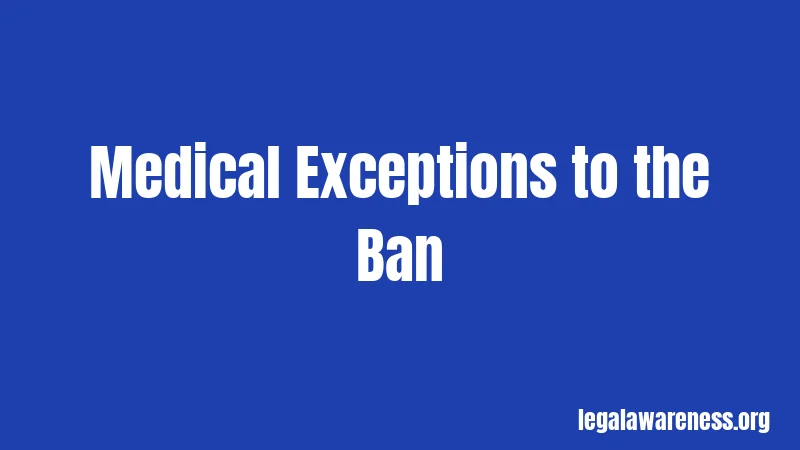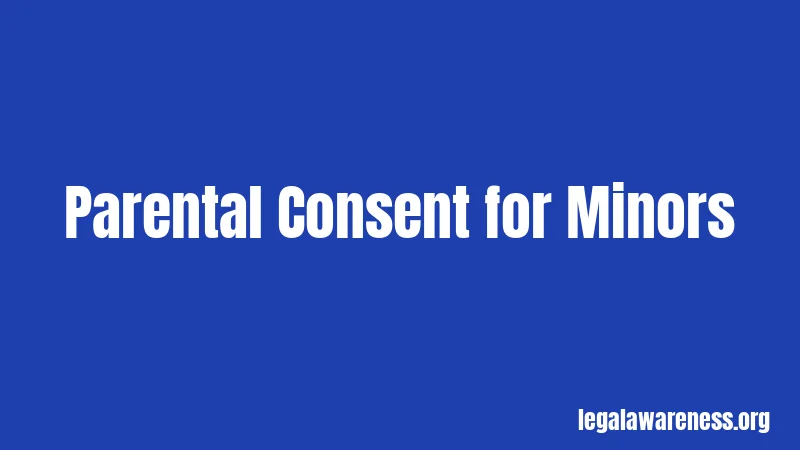Abortion Laws in Tennessee (2026): Strict Rules Every Resident Should Understand
Most people don’t fully grasp how restrictive Tennessee’s abortion laws really are. Seriously. The state has one of the toughest bans in the country, and the penalties are severe.
If you live in Tennessee or know someone who does, this matters. Understanding these laws could help you make informed decisions during an incredibly difficult time. Let’s break down exactly what you need to know.
What Is Tennessee’s Abortion Ban?

Tennessee has a near-total ban on abortion. This means abortion is illegal at all stages of pregnancy in the state. The ban went into effect on August 25, 2022, just weeks after the U.S. Supreme Court overturned Roe v. Wade.
The law is called the Human Life Protection Act. It was actually passed back in 2019 as a “trigger law.” That means it was designed to automatically take effect if Roe v. Wade was ever overturned. And that’s exactly what happened.
Here’s the deal. Tennessee’s law is stricter than many other states. There are no exceptions for rape or incest. Pretty tough, right? The only exceptions involve serious medical emergencies where the mother’s life is at risk.
How the Ban Works
Tennessee defines abortion as using any instrument, medicine, drug, or device to end a pregnancy. This includes both surgical procedures and medication abortion (the abortion pill).
The law does not apply to removing a dead fetus. It also doesn’t apply to treating ectopic pregnancies or molar pregnancies. These are medical conditions, not elective abortions. That distinction matters.
Wondering who can legally perform an abortion in Tennessee? Only licensed physicians. Before the ban, only doctors could perform the procedure anyway. But now, even doctors face serious legal risks.
Medical Exceptions to the Ban

Okay, pause. This part is important.
Tennessee does allow abortion in certain medical emergencies. But the rules are complicated. A doctor can perform an abortion if they determine it’s necessary to prevent the death of the pregnant woman. The procedure is also allowed to prevent serious risk of substantial and irreversible impairment of a major bodily function.
Sound vague? You’re not alone in thinking that. Many doctors in Tennessee have complained that the law is unclear. They worry about making the wrong call and facing criminal charges.
In 2023, lawmakers amended the law to add some clarification. They specified that treating ectopic and molar pregnancies is not considered abortion under the law. In 2024, a court ruling outlined specific conditions that qualify as medical exceptions:
- Previable preterm premature rupture of membranes (when the amniotic sac breaks too early)
- Inevitable abortion (when the cervix dilates before the pregnancy is viable)
- Fatal fetal diagnoses that lead to maternal health conditions like severe preeclampsia
- Fatal fetal diagnoses that could cause infection, uterine rupture, or loss of fertility
In 2025, lawmakers added these conditions to the state law. However, the law still does not include exceptions for mental health conditions. That remains controversial.
Penalties for Breaking the Law
Let’s talk about the consequences. They’re serious.
Performing or attempting to perform an illegal abortion in Tennessee is a Class C felony. This carries prison time of 3 to 15 years and fines up to $10,000. Some sources cite fines as high as $50,000 depending on the circumstances.
Doctors convicted under this law also face losing their medical licenses. The Tennessee Board of Medical Examiners can revoke or suspend a license for violations.
Here’s something that surprises many people. The pregnant woman herself cannot be prosecuted. The law specifically protects women from criminal penalties. Only the person performing the abortion faces charges.
But wait, there’s more. The law uses something called an “affirmative defense.” This means if a doctor is charged, they must prove in court that the abortion was medically necessary. The burden of proof is on the doctor, not the prosecutor. Many doctors find this chilling.
Parental Consent for Minors

Tennessee has strict rules for minors who might seek abortion care. Under state law, a person cannot perform an abortion on an unmarried minor under 18 without written consent from a parent or legal guardian.
The parent must provide proof of their relationship to the minor. This documentation must be kept on file for at least one year.
What if a minor can’t get parental consent? Before the ban, Tennessee allowed something called a judicial bypass. A teen could ask a judge for permission instead of going to a parent. Judges in Nashville approved about 10 of these requests each year.
Now? This option still technically exists in state law. But with abortion banned almost entirely, it’s essentially meaningless for most situations.
The “Abortion Trafficking” Law
In 2024, Tennessee passed a controversial new law. It’s sometimes called the “abortion trafficking of a minor” law.
This law makes it illegal for an adult to help a pregnant minor get an abortion without parental consent. This includes recruiting, harboring, or transporting the minor. It doesn’t matter if the abortion happens in another state where it’s legal.
The penalty is a Class A misdemeanor. That means up to 11 months and 29 days in jail. Additionally, the adult can be sued in civil court for wrongful death of the fetus.
Confused about what counts as “recruiting”? So were many people. The law doesn’t clearly define the term. Could it include telling a teen about their options? Giving them information about clinics in other states? These questions led to legal challenges.
In July 2025, a federal judge permanently blocked part of this law. The court ruled that prohibiting adults from sharing information about legal out-of-state abortions violates the First Amendment. The state is currently appealing this decision.
However, the law still applies to parents and guardians. They can legally help their minor child obtain an abortion in another state.
Waiting Period and Consent Requirements
Before the ban, Tennessee required a 48-hour waiting period between a patient’s initial consultation and the abortion procedure. This was one of the longest waiting periods in the country.
Patients also had to receive state-mandated counseling designed to discourage abortion. They had to view an ultrasound of the pregnancy. These requirements were reinstated by a federal appeals court after being challenged.
With the near-total ban now in effect, these requirements are largely moot for most situations. But they still technically apply to the rare medical emergency abortions that are permitted.
Impact on Tennessee Residents
More than 10,500 Tennessee women traveled to other states for abortions in 2023. That’s according to research from the Guttmacher Institute. Most went to Illinois. Others traveled to Virginia, North Carolina, California, and other states.
In 2024, about 10,020 Tennessee residents went out of state for abortion care. But here’s where it gets interesting. An additional 5,840 patients obtained abortions through telehealth appointments. They received abortion pills by mail from providers in states with “shield laws” that protect doctors from out-of-state prosecution.
This trend is growing. In the first half of 2025, about 750 Tennessee residents each month obtained abortions via telehealth. Tennessee law prohibits telehealth abortions and criminalizes mailing abortion pills. But these laws apply to providers, not patients.
The practical impact? Tennessee’s abortion ban has not stopped residents from getting abortions. It has made the process much more difficult, expensive, and time-consuming.
Ongoing Legal Challenges
Tennessee’s abortion law faces several legal challenges. Honestly, the legal situation keeps changing.
A group of Tennessee doctors and women who experienced dangerous pregnancy complications filed a lawsuit in 2023. They argued the medical exception was too vague. In October 2024, a three-judge panel temporarily blocked the state from disciplining doctors who perform emergency abortions.
The judges also outlined specific medical conditions that qualify as exceptions. In 2025, lawmakers added these conditions to state law. But the lawsuit is still ongoing.
The American Medical Association joined the case. Plaintiffs argue that even the amended law is inadequate to protect pregnant women’s health and lives. Judges have signaled skepticism that the state’s exceptions are sufficient.
In a separate decision, a federal judge blocked the “abortion trafficking” law in July 2025. The state has appealed that ruling.
How to Get Help
If you or someone you know needs information about abortion options, resources are available.
Planned Parenthood of Tennessee still operates clinics in the state. They cannot perform abortions, but they can provide information and referrals. They also help with travel logistics and funding for out-of-state care.
National organizations like the National Abortion Federation Hotline (1-800-772-9100) can help connect patients with providers in states where abortion is legal.
For medical emergencies, contact your healthcare provider immediately. Under Tennessee law, doctors can and should provide life-saving care when a patient faces serious health risks.
Frequently Asked Questions
Is abortion completely illegal in Tennessee?
Almost. Abortion is banned at all stages of pregnancy except in narrow medical emergencies where the mother’s life or major bodily function is at serious risk.
Can I be prosecuted for having an abortion in Tennessee?
No. Tennessee law specifically protects pregnant women from criminal prosecution. Only the person performing the abortion can face charges.
Can I travel to another state for an abortion?
Yes. Adults can legally travel to states where abortion is legal. However, helping a minor do so without parental consent may violate state law.
Are there exceptions for rape or incest?
No. Tennessee’s abortion ban does not include exceptions for pregnancies resulting from rape or incest.
Can I get abortion pills mailed to me in Tennessee?
Telehealth abortion is prohibited in Tennessee, and mailing abortion pills is criminalized for providers. However, some residents have obtained pills through providers in states with shield laws.
Final Thoughts
Tennessee’s abortion laws are among the strictest in the nation. The penalties are severe, and the exceptions are narrow. Whether you agree with the law or not, understanding how it works is essential.
If you’re facing a difficult pregnancy situation, know that options still exist. Reaching out to healthcare providers and advocacy organizations can help you understand what’s available to you.
Stay informed, and don’t be afraid to ask questions.
References
- Tennessee Code Ann. § 39-15-213 – Human Life Protection Act: https://wapp.capitol.tn.gov/apps/BillInfo/default.aspx?BillNumber=HB1029&GA=111
- Center for Reproductive Rights – Tennessee Abortion Ban Case: https://reproductiverights.org/case/emergency-exceptions-abortion-bans-idaho-tennessee-oklahoma/blackmon-v-state-of-tennessee/
- FindLaw – Tennessee Abortion Laws: https://www.findlaw.com/state/tennessee-law/tennessee-abortion-laws.html
- Guttmacher Institute – Tennessee Abortion Statistics: https://states.guttmacher.org/policies/tennessee/abortion-policies
- Tennessee Lookout – Ongoing Legal Challenges Coverage: https://tennesseelookout.com/2025/10/22/signaling-skepticism-that-exceptions-to-tn-abortion-ban-are-adequate-judges-rule-against-state/
